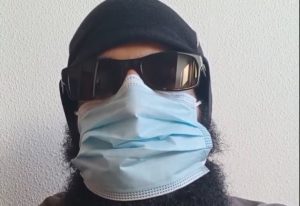Bars and cafes in Paris and its nearest suburbs, placed on maximum coronavirus alert Monday, will be shuttered for two weeks under new measures to slow the rapid spread of COVID-19 cases, officials said.
With the rate of new infections, hospitalisations and deaths accelerating months after the lifting of a nationwide lockdown, new rules to enforce social distancing will come into force on Tuesday.
Also Read | Restaurants to stay open, but Paris goes on maximum virus alert
“These are braking measures because the epidemic is moving too fast,” Paris police chief Didier Lallement told journalists. France reported nearly 17,000 new coronavirus cases on Saturday alone, the highest daily number since the country began widespread testing.
For Paris, the number was about 3,500 new cases every day — with a high of nearly 6,000 recorded last Monday, said Aurelien Rousseau, director of the ARS regional health agency. France on Monday reported 5,084 new daily cases, though those figures are typically lower at the start of the week.
Bars in Paris have continued to draw large crowds of people, often flouting physical distancing and mask-wearing guidelines.,But some in the industry said they felt unfairly singled out.
Also Read | Donald Trump, Usain Bolt, Silvio Berlusconi, Tom Hanks… famous names hit by Covid-19
“We’re really the guardians of good behaviour, we keep an eye on our clients,” said Remi, who runs the morning shift in a cafe and restaurant in central Paris. “Everything is clean, everybody wears masks. When people entertain at home that’s when they become irresponsible,” he told AFP, declining to give his last name.
Liam Porisse, co-owner of Corcoran’s, a spacious Irish pub, said revenue had already dropped 70 percent compared with pre-virus business, and his venue was losing more than 2,000 euros ($2,350) each day. “Closing down is a bit of a relief, really,” he told AFP, as he poured “a last drink” before shuttering the pub. “It’s cheaper than staying open.”
Rousseau said there were 203 active coronavirus “clusters” in the greater Paris region. He urged inhabitants of Paris and its suburbs, which jointly form the Ile-de-France region and are home to nearly seven million people, to go back to working from home as much as possible.
Restaurants, however, can continue to operate provided they meet stricter new conditions, Lallement said.
These will include making sanitising hand gel available at each dining table, limiting patrons to six at a table with at least a metre (3.3 feet) between seats, and allowing patrons to remove their masks only for eating. “We must continually find a balance between the health of our fellow citizens and the reality and necessity of economic and social life,” Lallement said.
For smaller restaurants the new rules sound like a death knell, said Michel, who owns a tiny eatery that also operates as a cafe and a bar — depending on the time of day — and as a tobacconist. The enforced distancing “is not going to work for small restaurants. They won’t be able to fit enough people in,” he told AFP. “Everybody is going have to crunch numbers: Is it worth staying open or not?”
“I think I’m going to shut it all, except for the tobacco sales, until further notice,” he said. Rousseau said 36 percent of intensive care hospital beds in Ile-de-France were now taken up by coronavirus patients — a ratio expected to rise to 50 percent in the coming weeks. “The pressure is strong,” he said.
“The point is to brake this progression.”,Lallement said pools and gyms in Paris would remain off-limits except for school activities; public gatherings would be limited to 10 people, and there would be a ceiling of 1,000 people on open-air stadiums for sporting or cultural events.
Visits to people in old-age homes may continue but only by appointment and limited to two visitors at a time. Alcohol sales after 10:00 pm will remain prohibited, as will weddings and other parties in reception halls.






